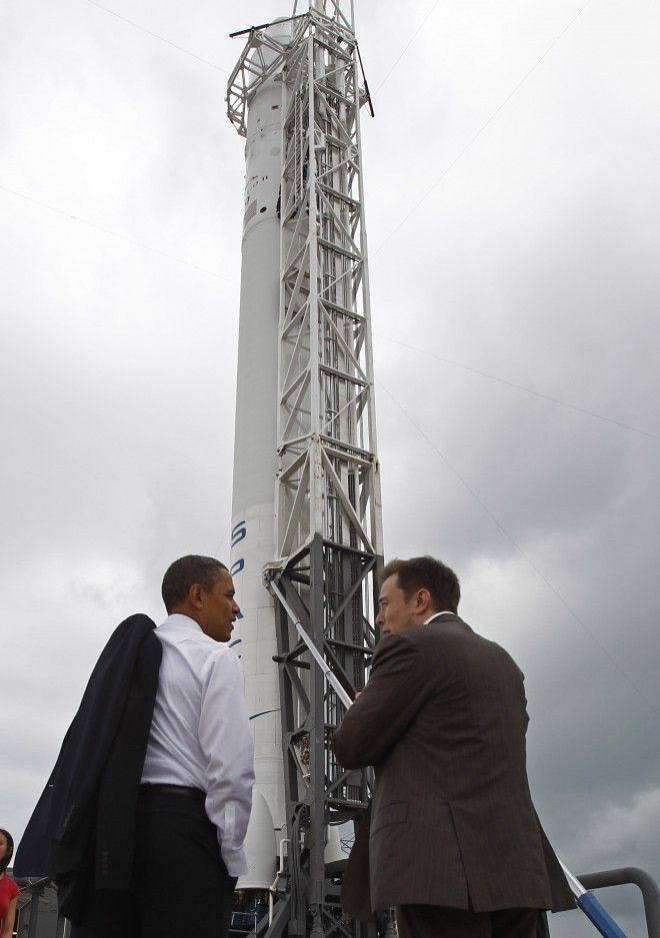SpaceX, Private Spaceships Race to Fill Shuttle Void

Privately owned Space Exploration Technologies, or SpaceX, is planning to fill the void left by the retiring U.S. space shuttle program with its own space taxi as it ramps up for a test later this year.
The company, run by Tesla Motor CEO Elon Musk, received $300 million from NASA with funds from other investors to develop rockets and capsules it hopes to test launch in November.
It's one of the first of several launches for the company as part of a 12-flight cargo mission to supply the International Space Station now that the U.S. space shuttle program has ended.
NASA tentatively agreed to send SpaceX's craft to the station, but the formal approval is still pending.
"We technically have agreed with SpaceX that we want to combine those flights, but we haven't given them formal approval yet," Bill Gerstenmaier, NASA Associate Administrator for Space Operations, said last week.
"We still want to go through some more analysis to go take a look and define exactly what criteria makes up that combined mission, what objectives are there, what the go/no go criteria is."
The SpaceX solution comprises of the Falcon 9 multistage rocket and the Dragon reusable space capsule that will carry the cargo.
Among the Dragon's test missions this winter, one would estimate the capsule's ability to do a "drive-by" of the space station, where it would approach close enough to test navigation and communication gear. The other test is to determine the craft's ability to dock.
A successful docking on Dec. 9 would validate NASA's plan to replace its space shuttles with cheaper, private vehicles.
"Overall, what we want to do is we want to get to cargo delivery as fast as we can, and if the systems are mature enough and the design is mature enough, combining those two flights is that best way to get cargo to ISS in the fastest manner possible," Gerstenmaier said.
According to their contract, NASA will pay $1.6 billion to SpaceX for a minimum of 12 flights, and is allowed to order additional missions for a cumulative total contract value of up to $3.1 billion.
Once its missions are fulfilled, SpaceX will be able to launch its first operational resupply flight in early 2012.
The California-based space transport company is among several vehicles competing to deliver cargo for NASA into space.
Another private company holding a contract with NASA is Orbital Sceinces Corp., which plans to launch the Cygnus resupply ship into space in February 2012.
Its chairman and CEO David Thompson noted that NASA's final Atlantis flight "was able to stock up the space station with supplies and consumables to buy some time for both us and SpaceX to get our cargo systems operational, but the pressure is on to get both of these delivery systems proven and into service over the course of the next year."
The return of Space shuttle Atlantis from the resupply flight on July 21 marked NASA's final shuttle mission that advanced America's half-century exploration of the space.
NASA is winding down its space shuttle operations this summer as it tries to save money, which will leave American and European astronauts with only Russian rockets as options for going into space. This opens the door for private space travel, however.
In February, the space shuttle Discovery, NASA's oldest and most travelled spacecraft, made its final voyage into space.
The country is focusing on inspiring 3rd part companies to put astronauts in orbit using privately run launch, transport and services companies.
NASA will now focus its resources on "deep space exploration", such as potential landings on asteroids and, eventually, Mars.
© Copyright IBTimes 2024. All rights reserved.





















